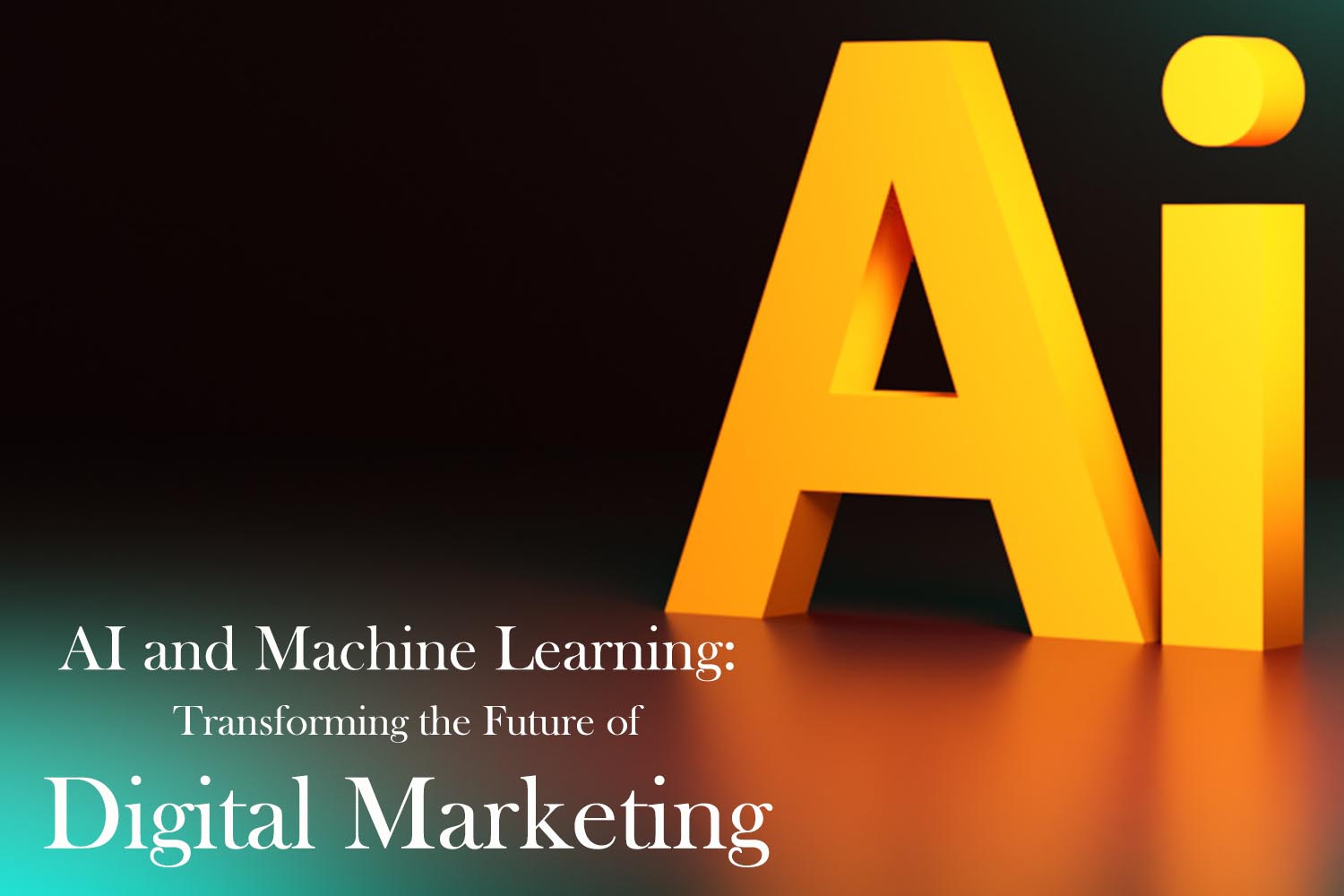Artificial Intelligence (AI) and machine learning are rapidly changing the digital marketing landscape.
In today’s world, businesses are increasingly using these technologies to streamline and optimize their marketing efforts, driving better results and higher ROI.
This post will explore the ways in which AI and machine learning are transforming digital marketing, and what it means for businesses.
Personalization
Personalization is one of the key benefits of AI in digital marketing.
AI algorithms can analyze vast amounts of data, including customer behavior, preferences, and purchasing patterns, and use this information to deliver highly personalized experiences to customers.
This can range from personalized product recommendations and targeted advertisements, to more individualized email campaigns and website content.
Personalization not only improves the customer experience, but also drives increased conversions, as customers are more likely to engage with content that feels relevant to them.
Predictive Analytics
Predictive analytics is another important application of AI in digital marketing.
This involves using machine learning algorithms to analyze historical data and identify patterns that can be used to make predictions about future outcomes.
For example, AI algorithms can predict which customers are most likely to make a purchase, which products are likely to sell well, or which marketing campaigns are likely to drive the most conversions.
This allows businesses to make data-driven decisions, improving their marketing efforts and maximizing ROI.
Chatbots and Virtual Assistants
Chatbots and virtual assistants are becoming increasingly popular in digital marketing, and AI is playing a key role in their development.
AI-powered chatbots can provide customers with immediate assistance and support, handling common inquiries and tasks such as product recommendations, order tracking, and account management.
This not only improves the customer experience, but also frees up valuable time for businesses, allowing them to focus on more strategic tasks.
Image and Video Recognition
Image and video recognition is another area where AI is changing digital marketing.
AI algorithms can analyze images and videos to identify specific objects, scenes, and patterns, which can be used to drive more effective marketing campaigns.
For example, businesses can use image recognition to analyze the performance of their visual content, such as advertisements, and make data-driven decisions about which visuals perform best.
This can help businesses optimize their visual content and drive better results.
Voice Search Optimization
With the increasing popularity of voice search, businesses need to optimize their digital marketing efforts for this new channel.
AI algorithms can help by analyzing voice search patterns and identifying the most commonly used keywords, phrases, and questions.
This allows businesses to create voice-optimized content and advertisements, improving their visibility in voice search results and driving better results.
Programmatic Advertising
Programmatic advertising is the use of technology to automate the buying and selling of advertising space.
AI and machine learning play a significant role in this process, as they allow algorithms to analyze vast amounts of data, such as consumer behavior, audience demographics, and ad performance, to make real-time bidding decisions.
This not only saves time and reduces manual effort, but also leads to more effective ad targeting, as the algorithms can quickly identify and bid on high-performing placements.
Customer Segmentation
Customer segmentation is the process of dividing a customer base into groups of individuals who have similar characteristics.
AI and machine learning can help businesses in this process by analyzing large amounts of data and identifying patterns and relationships.
This allows businesses to better understand their customers, and create more targeted and effective marketing campaigns.
For example, businesses can use AI to segment their customers based on demographics, purchase behavior, or engagement levels, and create tailored campaigns for each group.
Sentiment Analysis
Sentiment analysis is the process of determining the emotional tone behind a piece of text, such as a social media post or customer review.
AI algorithms can analyze vast amounts of customer feedback and identify the overall sentiment, providing businesses with valuable insights into how their customers are feeling.
This can help businesses to identify areas for improvement, track customer satisfaction, and respond more effectively to negative feedback.
Predictive Lead Scoring
Predictive lead scoring is the process of using machine learning algorithms to analyze customer data, such as behavior and engagement levels, and predict which leads are most likely to convert.
This allows businesses to prioritize their efforts and focus on the most valuable leads, improving their chances of success and reducing waste.
AI algorithms can analyze large amounts of data, such as website behavior and social media activity, to identify patterns and make accurate predictions, saving businesses time and effort in the lead nurturing process.
Ad Fraud Detection
Ad fraud is a major issue in digital marketing, as fraudsters use automated tools to artificially inflate ad impressions and clicks, costing businesses millions of dollars each year.
AI algorithms can help to combat ad fraud by detecting patterns of suspicious activity and flagging potential fraudsters.
This allows businesses to take action to prevent fraud, reducing their risk and improving the return on their advertising spend.
Conclusion
AI and machine learning are revolutionizing the digital marketing industry, providing businesses with a range of powerful tools to optimize their efforts and drive better results.
From personalization and predictive analytics, to programmatic advertising and ad fraud detection, AI is helping businesses to streamline their processes, improve efficiency, and provide a better customer experience.
As these technologies continue to evolve and become more sophisticated, it is clear that they will play an increasingly important role in digital marketing for years to come.





